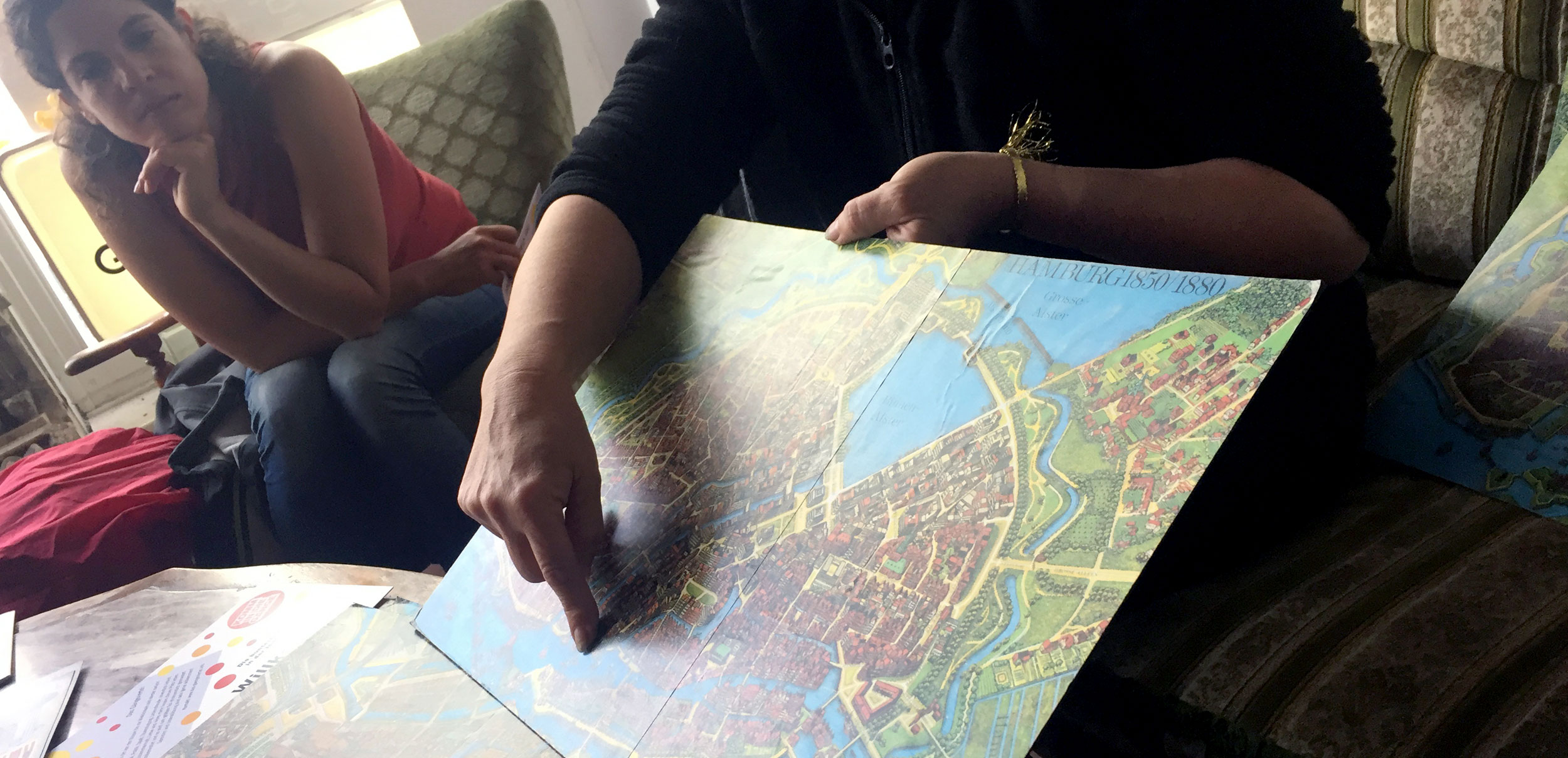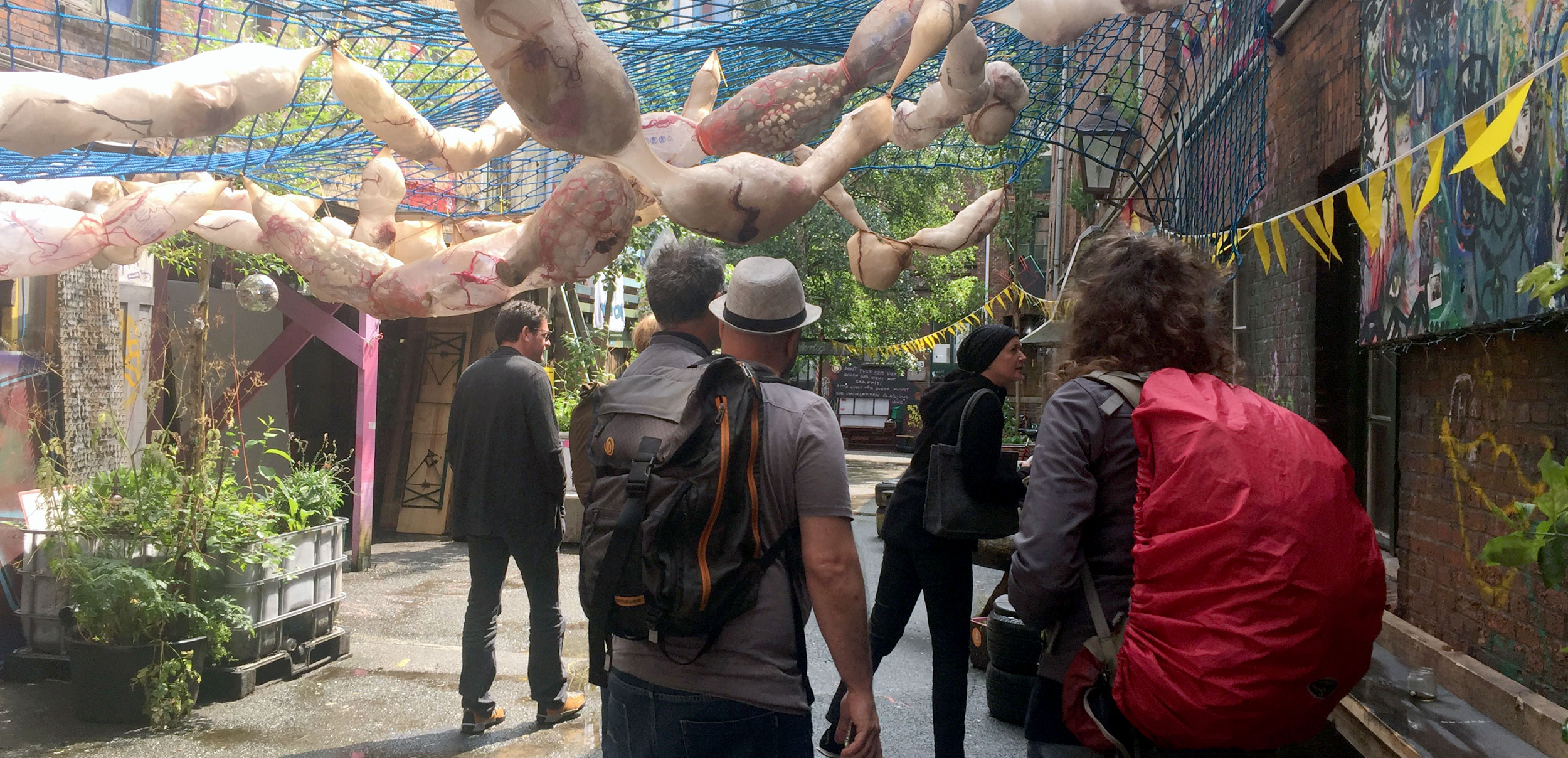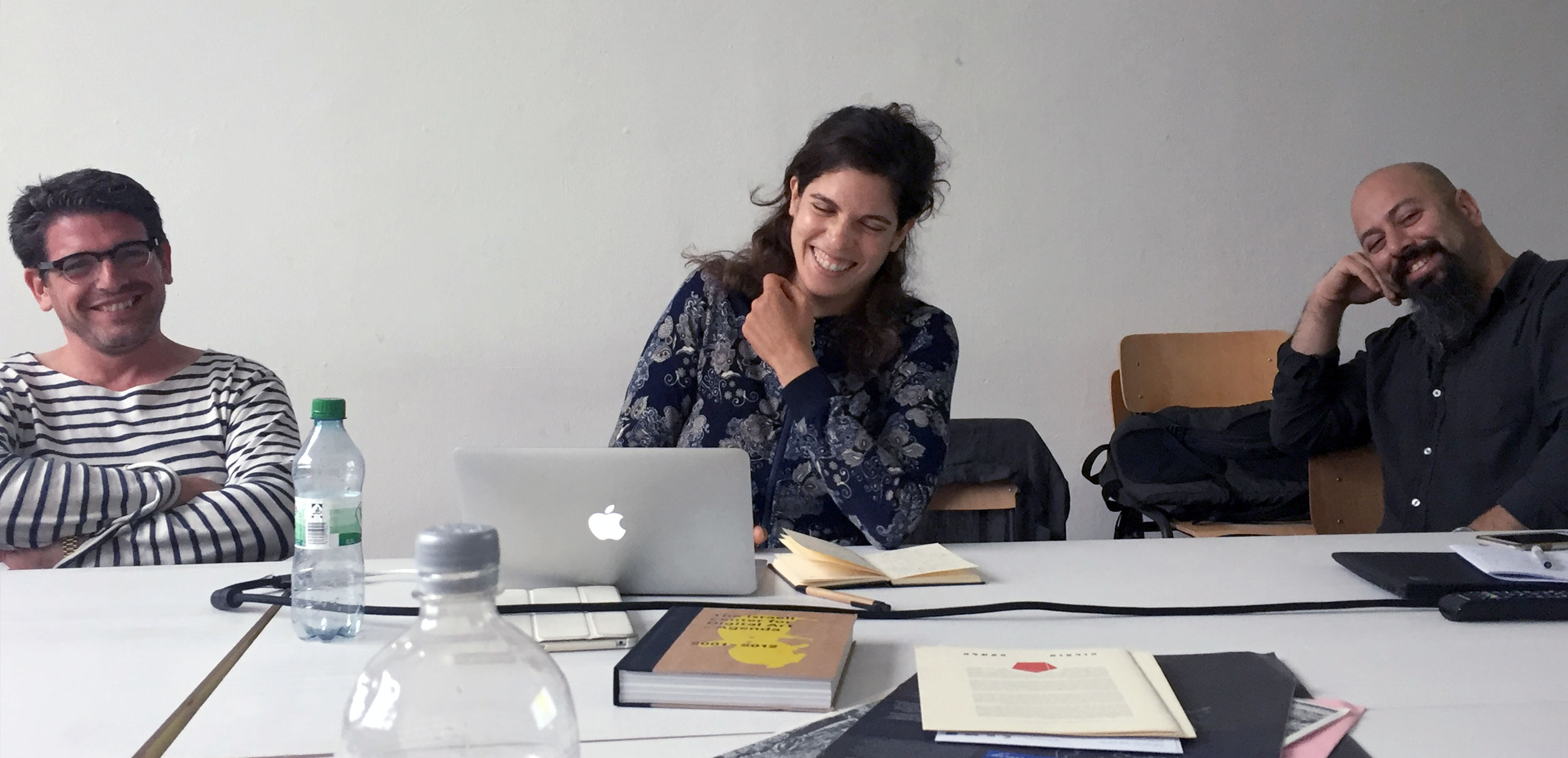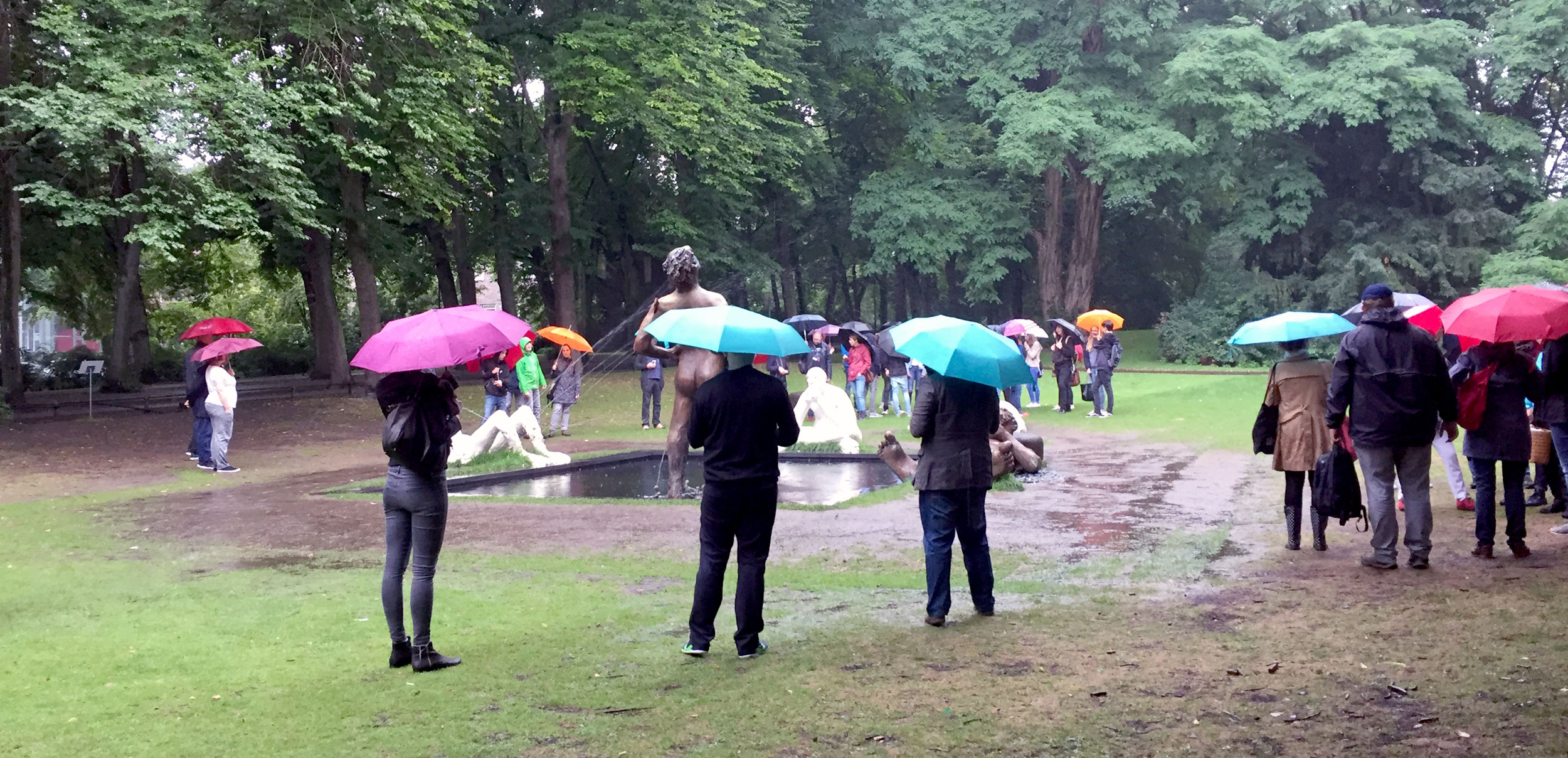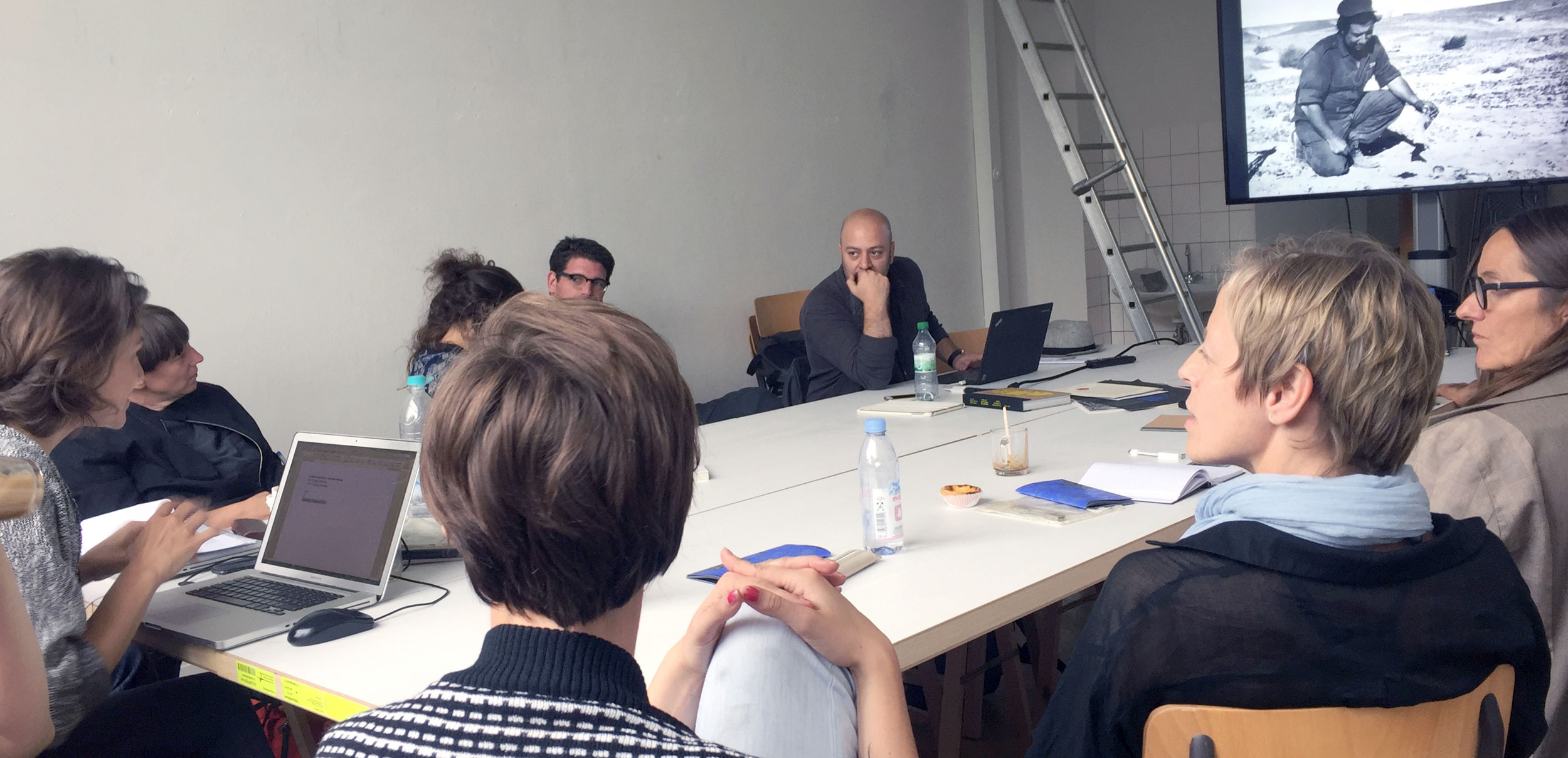German and Israeli Perspectives on Public Presence
Public space is not a neutral place. Art works, memorials, installations, and buildings are all marked by the culture, history, and narratives of those who created them. What does that mean for areas characterized by the social, cultural, and ethnic diversity of their residents? How is public space shared and which commonalities are visible? What role does art play here? This exchange project by the Hochschule für bildende Künste Hamburg and the Institute for Public Presence (at the Israeli Center for Digital Art) grapples with these questions.
Participants
26 curators, artists, and cultural studies scholars
Project Content
The project explores how actions and emotions can be displayed in public space and how people are influenced by artistic interventions when coming together in public. Doctoral students, curators, and artists from Holon and Hamburg meet in the process to explore together in interdisciplinary fashion how diverse societies share public space.
Project Working Methods
The project connects theoretical debate with artistic activities. The program includes discussions and lectures as well as excursions to the Gängeviertel area of Hamburg, Münster, Holon, Ramle, Lod, Arad, and the Negev desert, which are accompanied by local producers of art and culture. Visits are made to both established cultural centers and alternative artistic initiatives and cultures. Between the bilateral workshops, the participants have the time to work on their own contribution to the theme. An online platform is available at the same time for further exchange.
Project Goals
The project aims to examine the presence of historical and current social-political realities in public space – taking both established art into consideration as well as existing alternative cultures. A publication in German, Hebrew, and English that includes texts and visual presentations by the participants serves to make research findings and project impressions accessible to a broader audience.
Participants
26 curators, artists, and cultural studies scholars
Project Content
The project explores how actions and emotions can be displayed in public space and how people are influenced by artistic interventions when coming together in public. Doctoral students, curators, and artists from Holon and Hamburg meet in the process to explore together in interdisciplinary fashion how diverse societies share public space.
Project Working Methods
The project connects theoretical debate with artistic activities. The program includes discussions and lectures as well as excursions to the Gängeviertel area of Hamburg, Münster, Holon, Ramle, Lod, Arad, and the Negev desert, which are accompanied by local producers of art and culture. Visits are made to both established cultural centers and alternative artistic initiatives and cultures. Between the bilateral workshops, the participants have the time to work on their own contribution to the theme. An online platform is available at the same time for further exchange.
Project Goals
The project aims to examine the presence of historical and current social-political realities in public space – taking both established art into consideration as well as existing alternative cultures. A publication in German, Hebrew, and English that includes texts and visual presentations by the participants serves to make research findings and project impressions accessible to a broader audience.
Cooperating Partners
Hochschule für bildende Künste Hamburg
Israeli Center for Digital Art
Hochschule für bildende Künste Hamburg
Israeli Center for Digital Art






